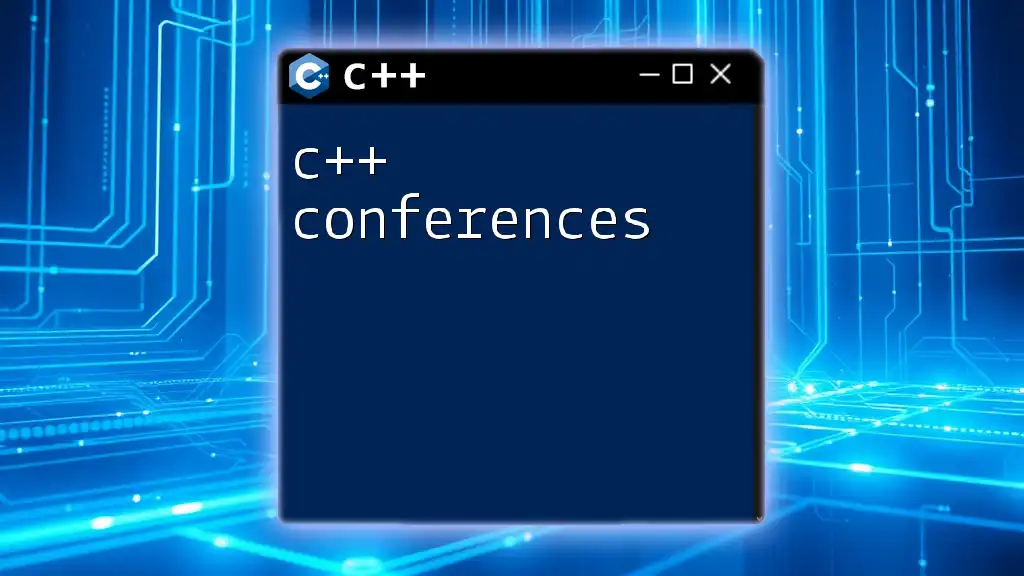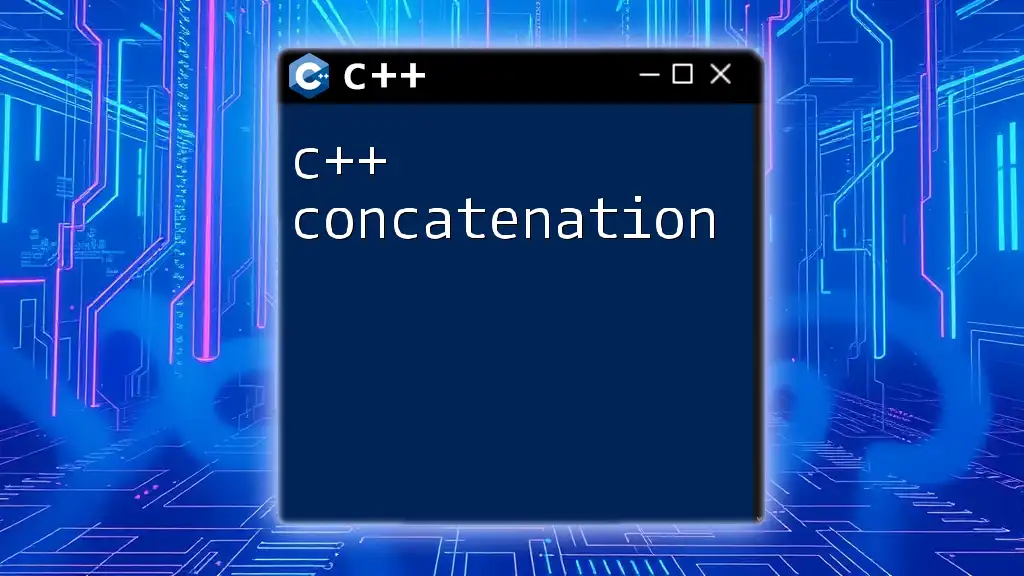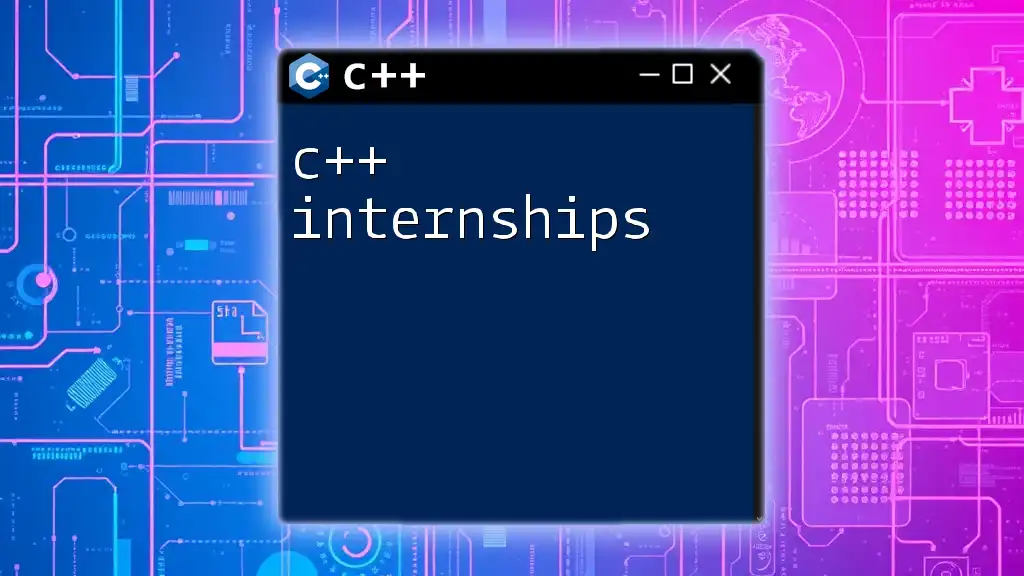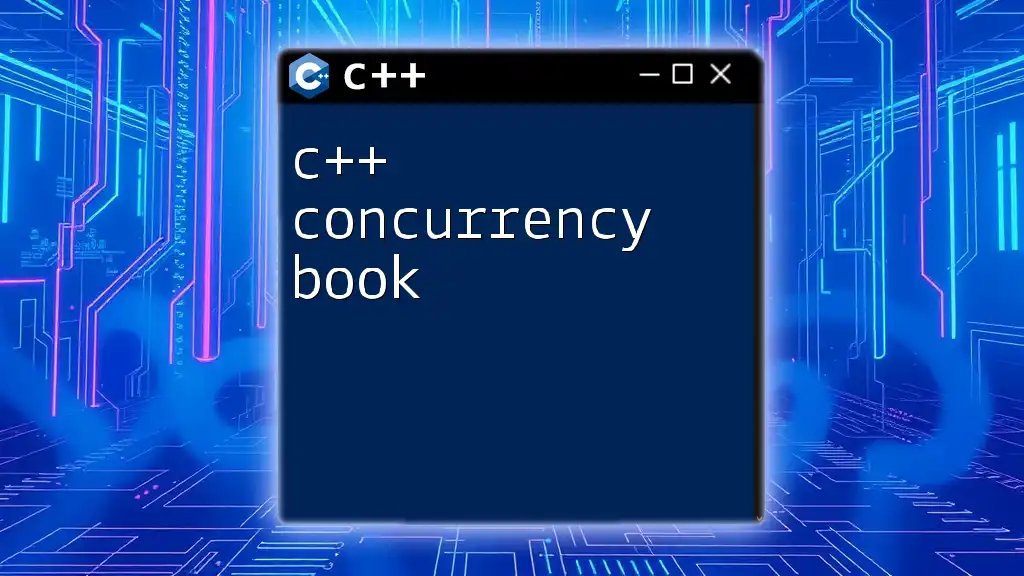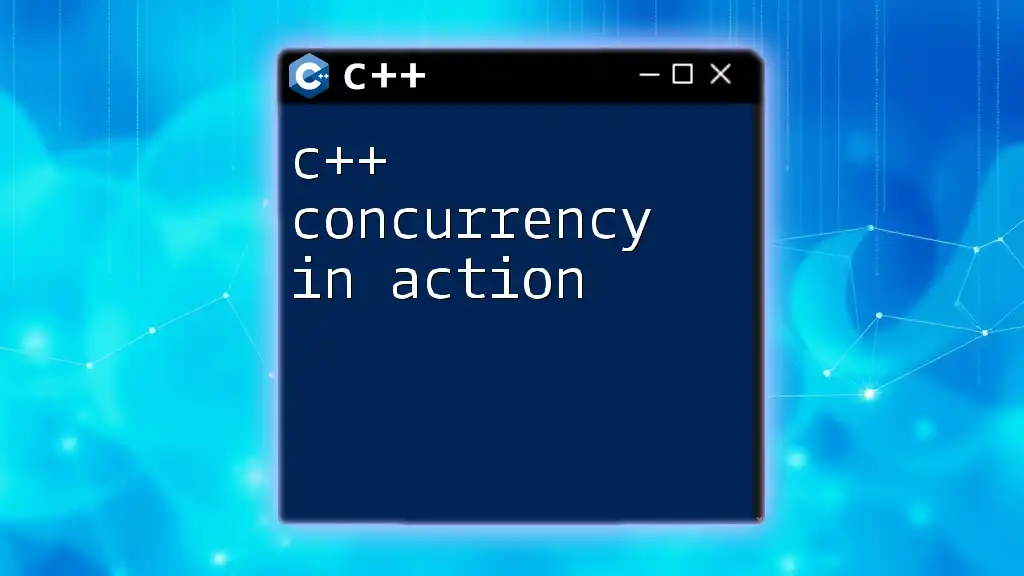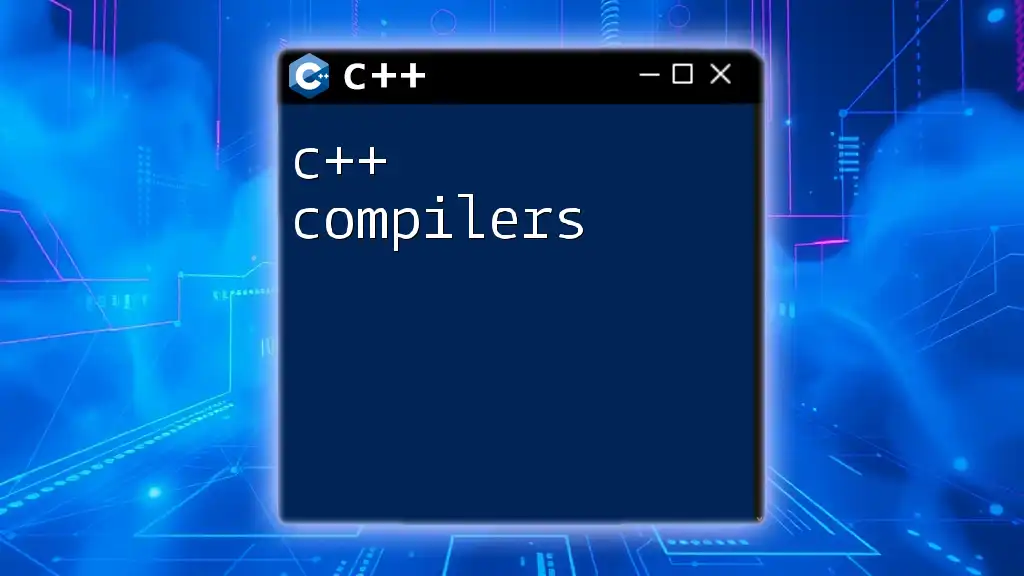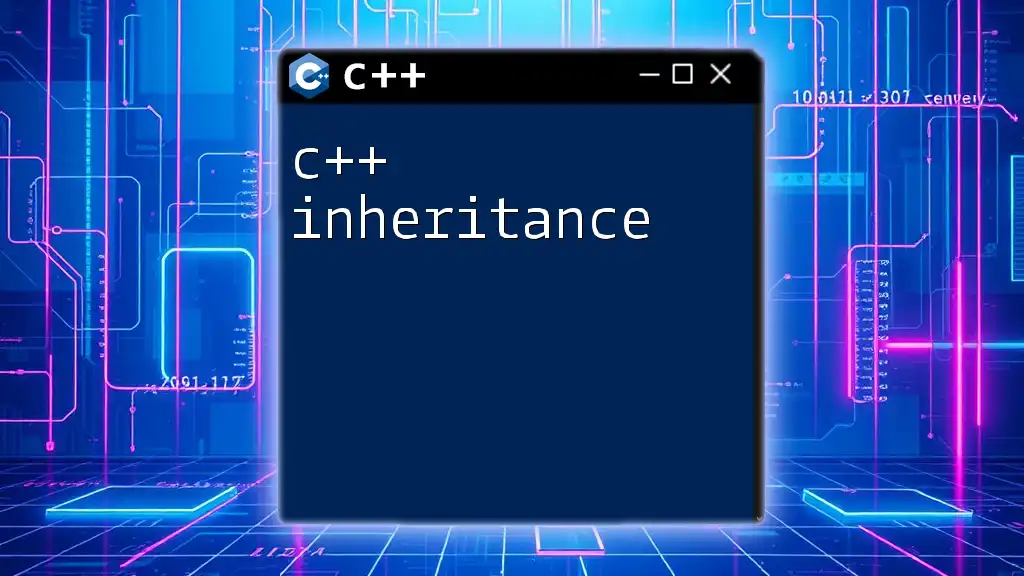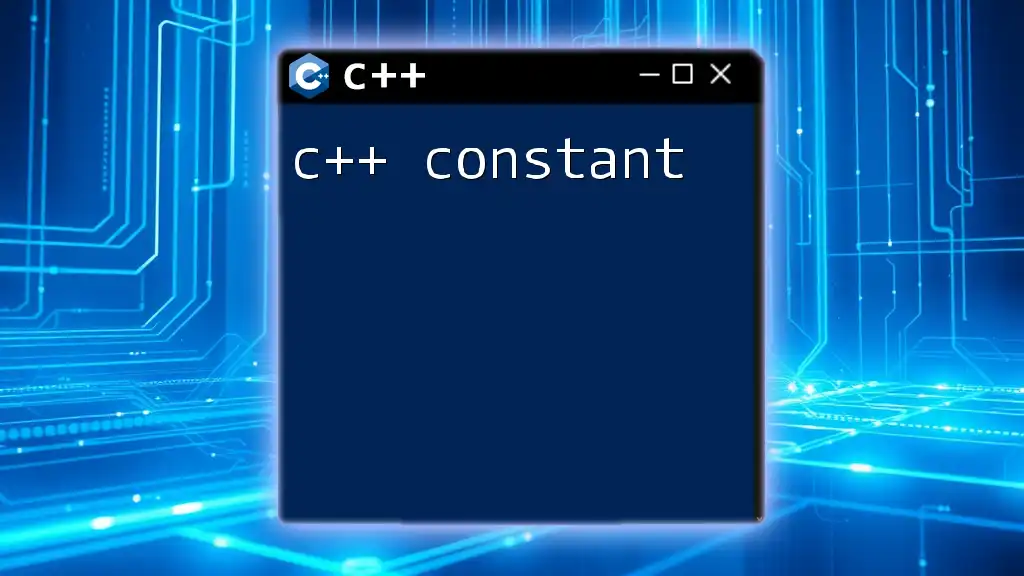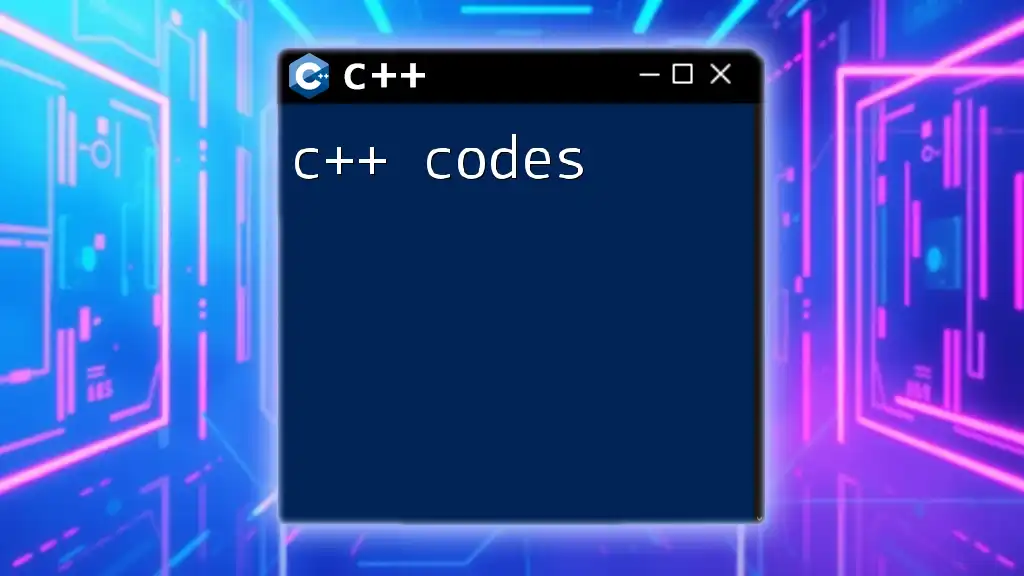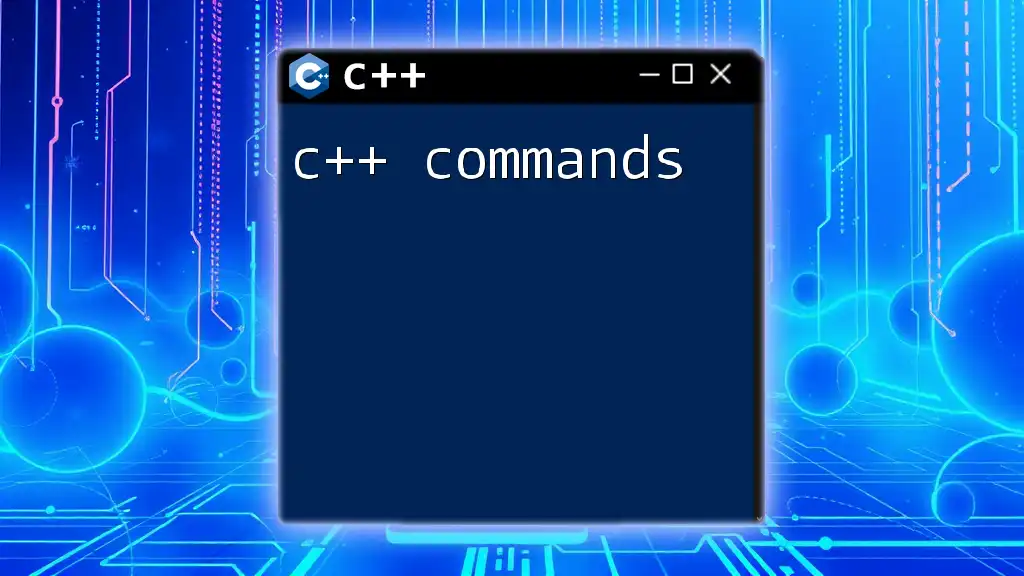C++ conferences are gatherings that bring together C++ enthusiasts, professionals, and experts to share knowledge, discuss best practices, and showcase new technologies in the C++ programming community.
Here's a simple C++ code snippet that demonstrates a basic "Hello, World!" program:
#include <iostream>
int main() {
std::cout << "Hello, World!" << std::endl;
return 0;
}
What is a C++ Conference?
C++ conferences are events that bring together developers, programmers, and industry experts to discuss the C++ programming language. These gatherings typically include a range of presentations, workshops, and networking opportunities aimed at sharing knowledge, best practices, and innovations in the C++ community. The significance of these conferences lies in fostering a deeper understanding of the language, encouraging collaboration, and inspiring attendees to apply what they learn in their own projects.
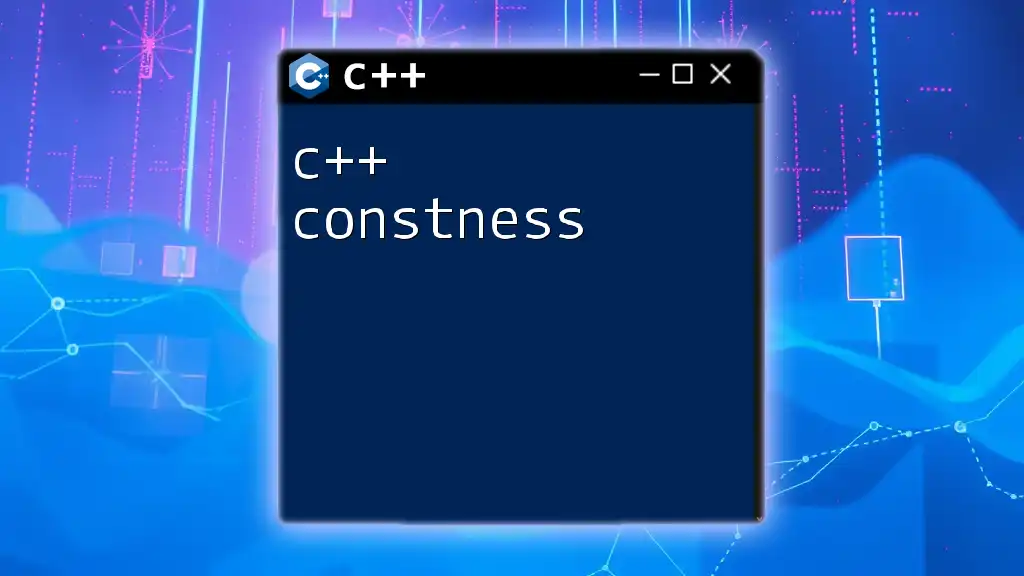
Types of C++ Conferences
Domestic vs. International Conferences
Domestic conferences often cater to local developers and focus on specific regional trends and technologies. They allow for easier participation, with reduced travel costs and time. On the other hand, international conferences feature a more diverse set of speakers and attendees, presenting an opportunity to learn from global experts and share insights with a broader audience. Both types have their unique advantages, depending on your goals and availability.
Specialized vs. General Conferences
C++ conferences can also be categorized based on their focus. Specialized conferences delve into niche topics, such as performance optimization, modern C++ features, or specific libraries. They are perfect for developers looking to deepen their expertise in a particular area. General conferences, however, cover a wide range of topics, making them suitable for attendees who wish to gain a broader understanding of the C++ ecosystem.
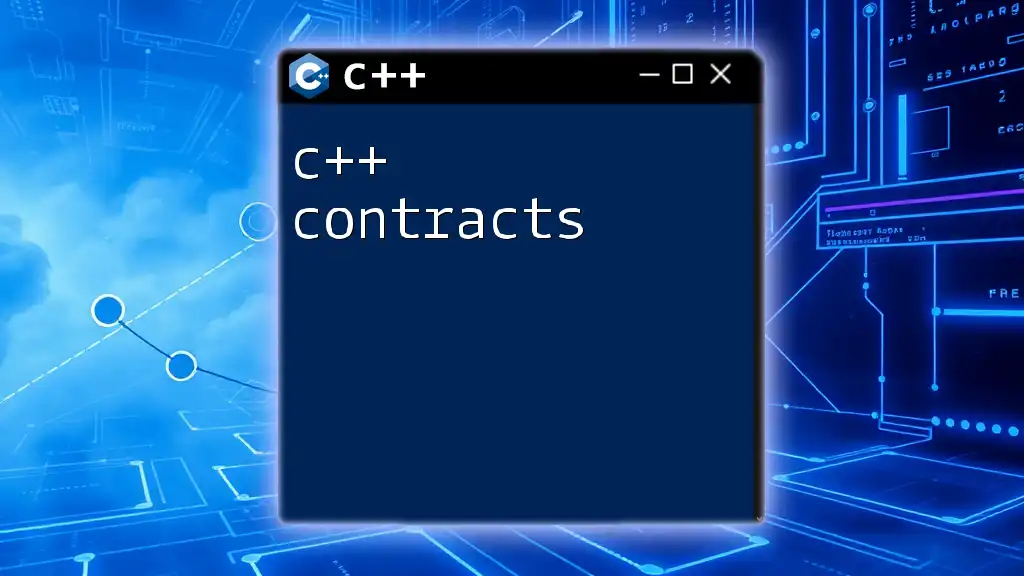
Major C++ Conferences You Should Attend
CPPCon
CPPCon is regarded as one of the most prominent C++ conferences globally. It features an extensive lineup of keynote speakers, workshops, and panels, covering various aspects of the language and community. Notable features of CPPCon include:
- Workshops: Interactive hands-on sessions allowing participants to apply new techniques and concepts.
- Networking events: Opportunities to connect with other developers, presenters, and industry leaders.
Meeting C++
Meeting C++ is a unique conference that emphasizes collaboration among C++ developers and enthusiasts. With a clear focus on community involvement, this conference features a wide array of sessions and talks. Highlights include:
- Panel discussions
- Expert talks on practical applications of C++
C++ Now
C++ Now is an educational conference blending learning and practical experience. This event is specifically designed for developers and offers various sessions, workshops, and informal discussions. Attendees gain invaluable insights into using modern C++ features effectively, with a strong emphasis on hands-on learning.
C++ Europe
Focusing on the European C++ community, C++ Europe provides a platform for discussing trends, challenges, and the latest developments in C++. The conference features significant speakers and sessions with insights into emerging technologies, best practices, and collaborative projects.
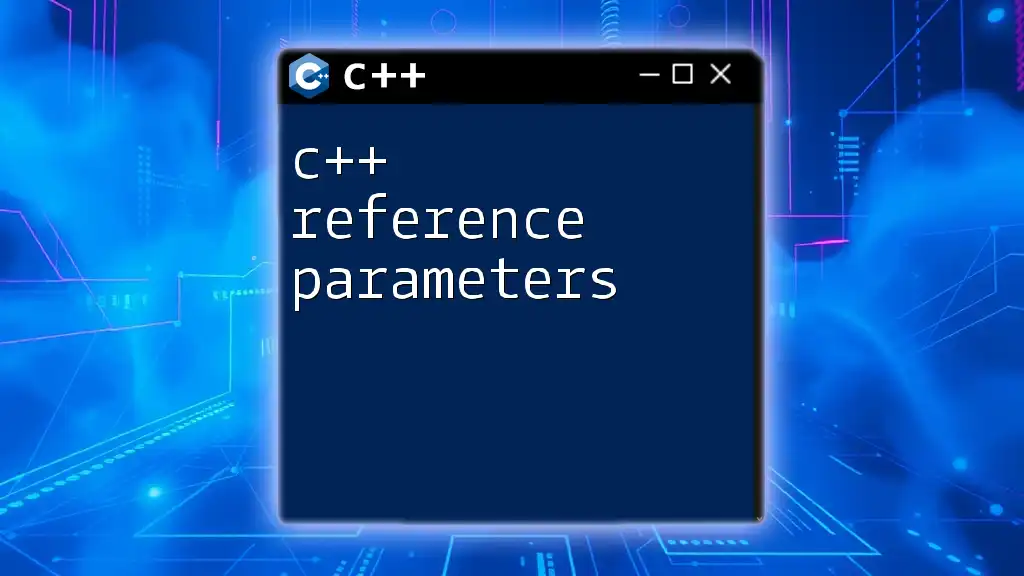
Benefits of Attending C++ Conferences
Networking Opportunities
One of the most significant advantages of attending C++ conferences is the opportunity to network with other professionals in the field. These events often attract some of the top C++ developers and industry leaders. Engaging with these individuals can lead to future collaborations, mentorship opportunities, and job prospects. Building a professional network is a valuable asset in any developer's career.
Learning from Experts
C++ conferences provide direct access to communication with industry experts who share their knowledge and experience. Attendees gain insight into the latest trends, techniques, and challenges in the C++ landscape. Sessions often feature in-depth discussions around real-world applications, helping developers understand how to implement new features effectively.
Example: A session might focus on leveraging C++17 features such as `std::optional` to improve code safety and clarity, demonstrating its implementation with real-world scenarios.
Workshops and Hands-on Experience
Many C++ conferences include workshops that offer hands-on experience, allowing attendees to apply concepts learned during presentations. These workshops can range from beginner-level introductory courses to advanced programming challenges.
Example: A hands-on lab may involve participants optimizing code for better performance with tools like Valgrind or applying modern C++ techniques like lambda expressions.
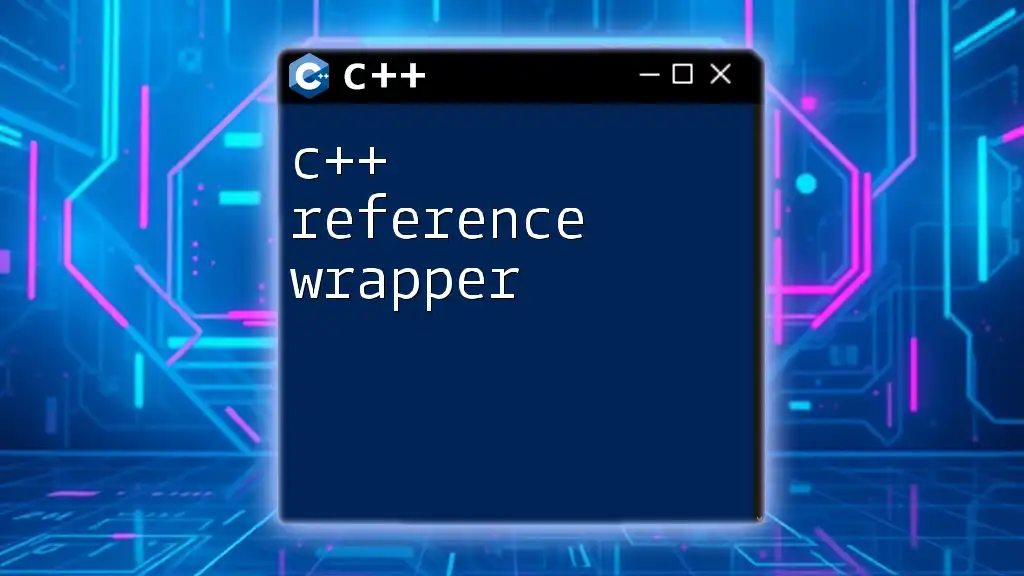
How to Prepare for a C++ Conference
Before the Conference
Preparation is key to maximizing your conference experience. Start by researching the sessions and speakers to identify which ones align with your interests and professional goals. Create a personal agenda based on your selections and make a list of "must-see" sessions. This preparation will ensure you make the most of your time at the event.
During the Conference
When attending the conference, prioritize engaging with speakers and other professionals. Prepare to introduce yourself and ask thoughtful questions that demonstrate your interest. Keep notes on essential takeaways, interesting code snippets, and key points raised during discussions.
After the Conference
Post-conference, take advantage of the connections you've made. Follow up with new contacts through LinkedIn or social media, and consider joining online communities to continue discussions started at the conference. Implement the learnings in your own projects, as the application of new knowledge is where the real benefits of attending conferences shine.
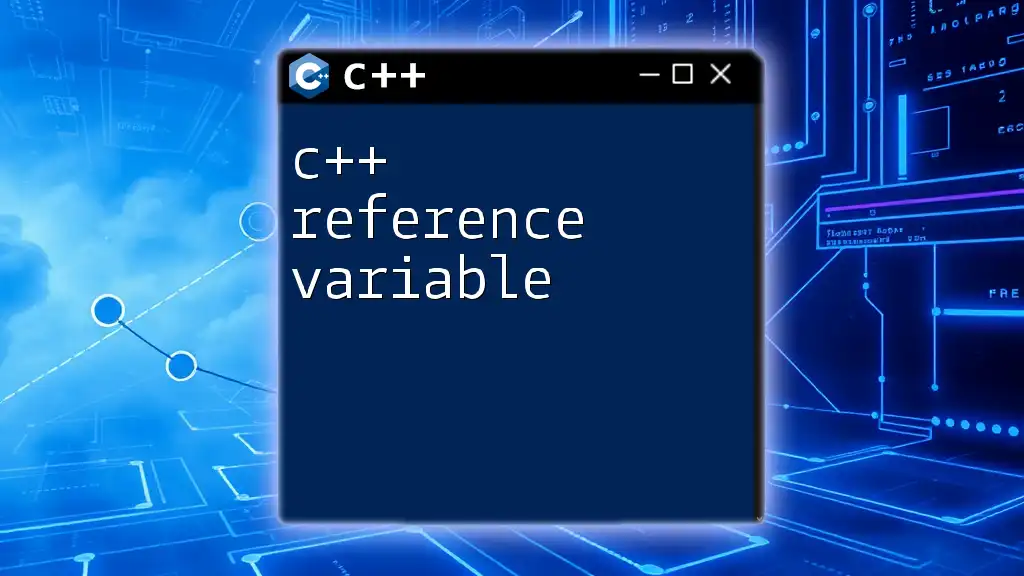
Code Snippets from Notable Talks
Example 1: Modern C++ Features
During one session at a recent conference, a speaker presented the following code snippet demonstrating the use of structured binding introduced in C++17:
#include <iostream>
#include <tuple>
std::tuple<int, double> getData() {
return {1, 3.14};
}
auto main() -> int {
auto [id, value] = getData();
std::cout << "ID: " << id << ", Value: " << value << "\n";
return 0;
}
This example highlights how structured binding can lead to cleaner and more intuitive code.
Example 2: Performance Tips from Industry Leaders
In another session focused on optimization techniques, the following code snippet was shared to illustrate efficient memory usage:
void optimizePerformance(std::vector<int>& arr) {
for (auto& element : arr) {
element *= 2; // Doubling each element
}
}
This simple yet effective approach underscores the importance of using range-based loops in modern C++ for better readability and performance.
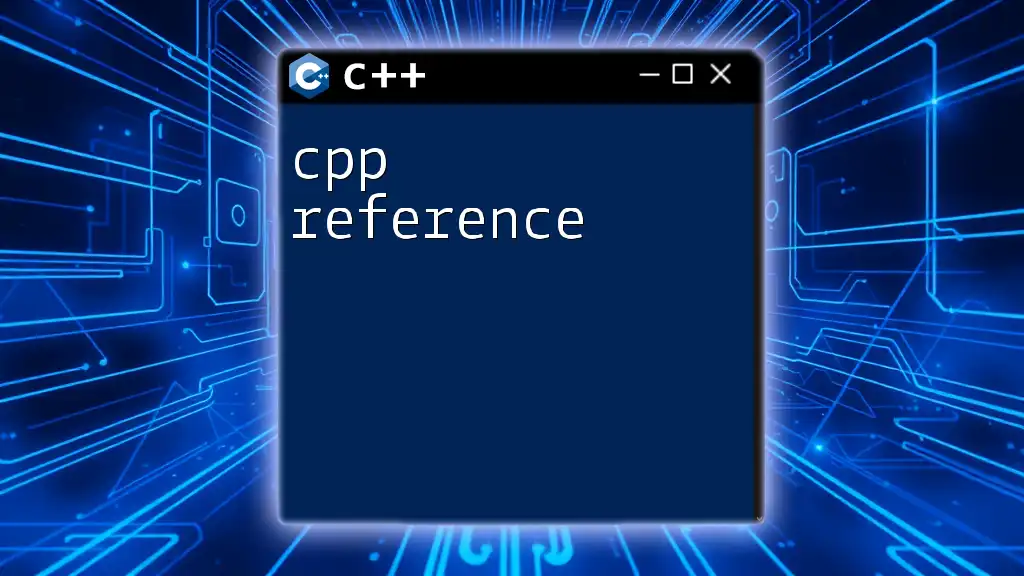
Conclusion
Attending C++ conferences is an invaluable opportunity for developers to enhance their skills, expand their knowledge, and build professional connections. Whether you are a seasoned expert or just starting in C++, there are many benefits to participating in these significant events. With a plethora of conferences available, you can find the right one that aligns with your interests and aspirations.
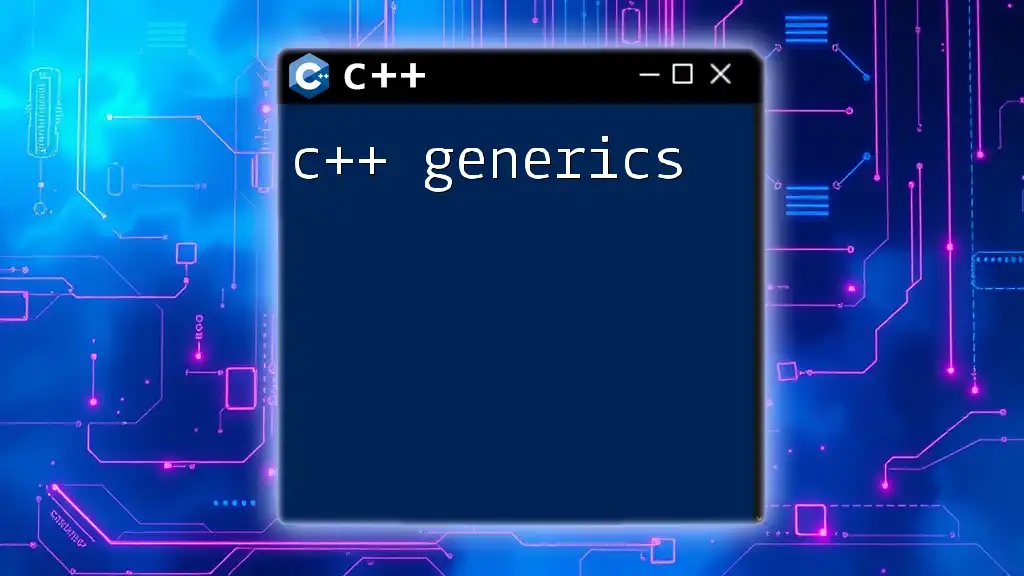
Additional Resources
To further explore upcoming C++ conferences, consider checking event calendars and local meetups. Numerous online communities and forums also provide insights and links to valuable resources and readings from past events.
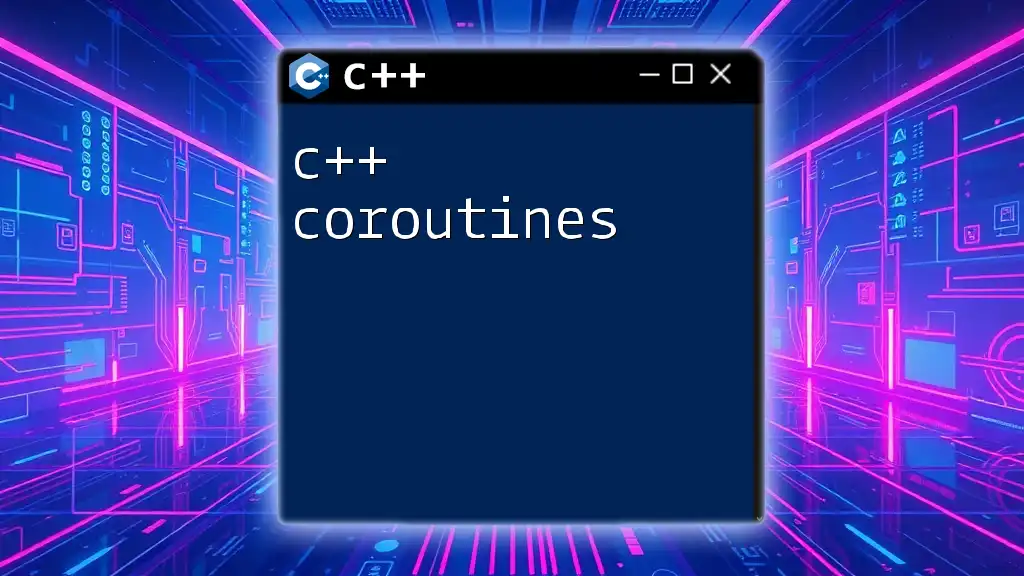
FAQs
What should I bring to a C++ conference?
It's recommended to bring your laptop, business cards for networking, and a notebook for jotting down insights and key takeaways during sessions.
How can I participate as a speaker at a C++ conference?
If you're interested in becoming a speaker, look for the conference's call for papers or proposals. Prepare a well-thought-out topic, along with examples and a compelling presentation, to improve your chances of being selected.

